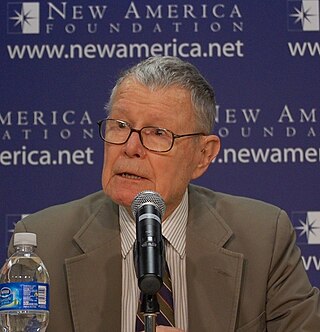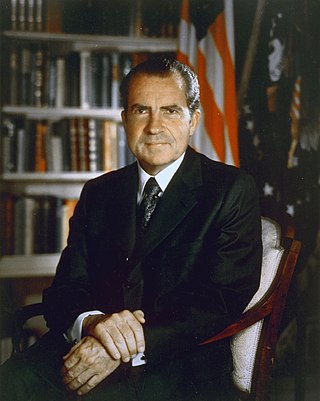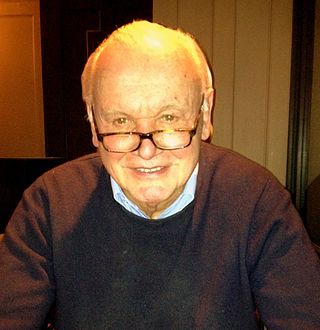Related Research Articles
Political science is the scientific study of politics which is a social science dealing with the analysis and implementation of systems of governance and its impact on societies.

Import substitution industrialization (ISI) is a trade and economic policy that advocates replacing foreign imports with domestic production. It is based on the premise that a country should attempt to reduce its foreign dependency through the local production of industrialized products. The term primarily refers to 20th-century development economics policies, but it has been advocated since the 18th century by economists such as Friedrich List and Alexander Hamilton.

The Engesa EE-T1 Osório was a Brazilian main battle tank prototype developed by Engesa. The tank was intended to be sold first to Arab and other Third World countries, jump-starting production — and enabling the Brazilian Army to later place its own orders without having to fund development costs. Development of the tank was initially privately funded by Engesa, but cashflow issues eventually led to the Brazilian government extending a loan to assist the program. Two prototypes of the tank were built, but the EE-T1 was never adopted for service.
International political economy (IPE) is the study of how politics shapes the global economy and how the global economy shapes politics. A key focus in IPE is on the distributive consequences of global economic exchange. It has been described as the study of "the political battle between the winners and losers of global economic exchange."

Thomas Crombie Schelling was an American economist and professor of foreign policy, national security, nuclear strategy, and arms control at the School of Public Policy at University of Maryland, College Park. He was also co-faculty at the New England Complex Systems Institute. He was awarded the 2005 Nobel Memorial Prize in Economic Sciences for "having enhanced our understanding of conflict and cooperation through game-theory analysis."

Deterrence theory refers to the scholarship and practice of how threats or limited force by one party can convince another party to refrain from initiating some other course of action. The topic gained increased prominence as a military strategy during the Cold War with regard to the use of nuclear weapons and is related to but distinct from the concept of mutual assured destruction, according to which a full-scale nuclear attack on a power with second-strike capability would devastate both parties. The central problem of deterrence revolves around how to credibly threaten military action or nuclear punishment on the adversary despite its costs to the deterrer.

Robert Jervis was an American political scientist who was the Adlai E. Stevenson Professor of International Politics in the Department of Political Science at Columbia University. Jervis was co-editor of the Cornell Studies in Security Affairs, a series published by Cornell University Press.

The madman theory is a political theory commonly associated with United States President Richard Nixon's foreign policy. Nixon and his administration tried to make the leaders of hostile Communist Bloc nations think he was irrational and volatile. According to the theory, those leaders would then avoid provoking the United States, fearing an unpredictable American response.

Argentina has a history with the development of weapons of mass destruction. Under the military dictatorship, Argentina began a nuclear weapons program in the early 1980s, but this was abolished when democracy was restored in 1983.

Security studies, also known as international security studies, is an academic sub-field within the wider discipline of international relations that studies organized violence, military conflict, national security, and international security.
Rational choice institutionalism (RCI) is a theoretical approach to the study of institutions arguing that actors use institutions to maximize their utility, and that institutions affect rational individual behavior. Rational choice institutionalism arose initially from the study of congressional behaviour in the U.S. in the late 1970s. Influential early RCI scholarship was done by political economists at California Institute of Technology, University of Rochester, and Washington University. It employs analytical tools borrowed from neo-classical economics to explain how institutions are created, the behaviour of political actors within it, and the outcome of strategic interaction.

Peter Abell is a British social scientist, currently professor emeritus at the London School of Economics where he has founded and directed the "Interdisciplinary Institute of Management". He has been teaching for many years at LSE's Department of Management, managerial economics and strategy group.
Masahiko Aoki was a Japanese economist, Tomoye and Henri Takahashi Professor Emeritus of Japanese Studies in the Economics Department, and Senior Fellow of the Stanford Institute for Economic Policy Research and Freeman Spogli Institute for International Studies at Stanford University. Aoki was known for his work in comparative institutional analysis, corporate governance, the theory of the firm, and comparative East Asian development.
Tanja A. Börzel is a German political scientist. Her research and teaching focus on the fields of European Integration, Governance, and Diffusion. She is professor of Political Science at the Otto-Suhr-Institute of Political Science of Freie Universität Berlin, director of the Center for European Integration, and holder of the Jean Monnet Chair for European Integration from 2006 until 2009. Currently, she is department chair of the Otto-Suhr-Institute of Political Science.
Compellence is a form of coercion that attempts to get an actor to change its behavior through threats to use force or the actual use of limited force. Compellence can be more clearly described as "a political-diplomatic strategy that aims to influence an adversary's will or incentive structure. It is a strategy that combines threats of force, and, if necessary, the limited and selective use of force in discrete and controlled increments, in a bargaining strategy that includes positive inducements. The aim is to induce an adversary to comply with one's demands, or to negotiate the most favorable compromise possible, while simultaneously managing the crisis to prevent unwanted military escalation."
In international relations, migration diplomacy is 'the use of diplomatic tools, processes, and procedures to manage cross-border population mobility,' including 'both the strategic use of migration flows as a means to obtain other aims, and the use of diplomatic methods to achieve goals related to migration.' Migration has come to constitute an increasingly-important area of states' engagement with one another, with bilateral multilateral strategies including the promotion or discouragement of bilateral migratory flows; agreements on preferential treatment to certain foreign nationals; the initiation of guest-worker programmes or other short-term labor migration schemes; the deportation of foreign nationals; and so on.
Energy diplomacy is a form of diplomacy, and a subfield of international relations. It is closely related to its principal, foreign policy, and to overall national security, specifically energy security. Energy diplomacy began in the first half of the twentieth century and emerged as a term during the second oil crisis as a means of describing OPEC's actions. It has since mainly focused on the securitization of energy supplies, primarily fossil fuels, but also nuclear energy and increasingly sustainable energy, on a country or bloc basis.
Rational choice is a prominent framework in international relations scholarship. Rational choice is not a substantive theory of international politics, but rather a methodological approach that focuses on certain types of social explanation for phenomena. In that sense, it is similar to constructivism, and differs from liberalism and realism, which are substantive theories of world politics. Rationalist analyses have been used to substantiate realist theories, as well as liberal theories of international relations.
Chung Chien-peng is a political scientist from Hong Kong.

Geopolitics, Supply Chains, and International Relations in East Asia is a nonfiction edited volume by American political scientist Etel Solingen.
References
- ↑ "Etel L. Solingen". sites.socsci.uci.edu. Retrieved 2023-05-23.
- ↑ Kleinman, Daniel Lee (April 1998). "Etel Solingen, ed., Scientists and the State: Domestic Structures and the International Context (University of Michigan Press, 1994) (review)". Comparative Studies in Society and History. 40 (2): 409. doi:10.1017/S0010417598001133. S2CID 145482550 . Retrieved 11 April 2014.
- ↑ E.J., Savino (1999). "Industrial Policy, Technology, and International Bargaining: Designing Nuclear Industries in Argentina and Brazil (review)". Journal of Latin American Studies. 31 (1): 191–243. doi:10.1017/s0022216x98545269. S2CID 145668256 . Retrieved 11 April 2014.
- ↑ Kacowicz, Arie M. (2000). "Regional Orders at Century's Dawn: Global and Domestic Influences on Grand Strategy by Etel Solingen (review)". Political Science Quarterly. 115 (1): 167–169. doi:10.2307/2658066. JSTOR 2658066.